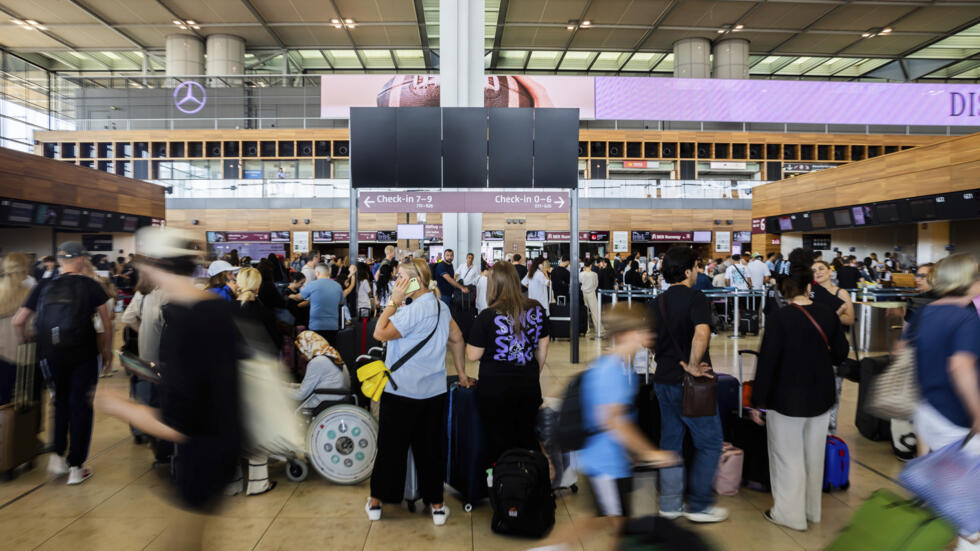Gambiaj.com – (BANJUL, The Gambia) – A global technology outage on Friday caused widespread chaos, grounding flights, disrupting banks and hospital systems, and silencing media outlets in a major disruption that underscored the world’s dependence on a few key software providers.
The source of the problem was traced to a faulty software update from cybersecurity firm CrowdStrike, affecting computers running Microsoft Windows. While CrowdStrike assured that the issue was not a cyberattack, the consequences were severe and far-reaching.
Long lines formed at airports across the U.S., Europe, and Asia as airlines lost access to check-in and booking systems, stranding many travelers during the peak summer vacation season. In the UK, television broadcasts were derailed, while telecommunications services in Australia faced significant interruptions, affecting news outlets and internet providers.
Hospitals and doctor’s offices worldwide reported issues with appointment systems, with Britain’s National Health Service confirming disruptions across England. Banks in South Africa and New Zealand experienced outages in payment systems, causing inconvenience to customers.
James Bore, a cybersecurity expert, warned of the real harm caused by such outages. “Hospitals will struggle to sort out appointments, and those who need care may not get it. There are going to be deaths because of this. It’s inevitable,” Bore stated.
Microsoft 365 announced on social media that it was working to reroute the impacted traffic to alternate systems and observed a positive trend in service availability. Meanwhile, CrowdStrike released a statement confirming they were actively working with affected customers to resolve the defect.
The outage also disrupted the arrival of athletes and spectators for the upcoming Paris Olympics. While the city’s airport authority reported no direct impact on its computer systems, delays were noted at major Paris airports.
Airlines and railways in the UK experienced longer waiting times, and flights were halted at Germany’s Berlin-Brandenburg Airport and Zurich Airport in Switzerland. In Australia, airports faced growing lines and stranded passengers as online check-in services were disabled.
The financial sector also felt the brunt of the outage. Banks in Australia, South Africa, and New Zealand reported significant service disruptions. Australia’s major banks and airlines, including NAB, Commonwealth, Bendigo, Virgin Australia, and Qantas, were affected, as were internet and phone providers like Telstra.
Media outlets struggled to broadcast, with Australia’s public broadcaster ABC and Sky News Australia going off-air for hours. Hospitals in Israel and northern Germany reported canceling elective surgeries, though emergency care remained unaffected.
CrowdStrike’s shares dropped nearly 15% in premarket trading as the company worked to contain the fallout. Governments and officials worldwide scrambled to respond, emphasizing the need to understand the impacts and restore normalcy.
David Seymour, New Zealand’s acting prime minister, stated that officials were moving quickly to assess the situation, assuring the public that it was not a cybersecurity threat but causing significant inconvenience.
As companies and services around the world continued to reel from the outage, the incident highlighted the critical reliance on a handful of software providers and the cascading effects of technological failures on global infrastructure.










